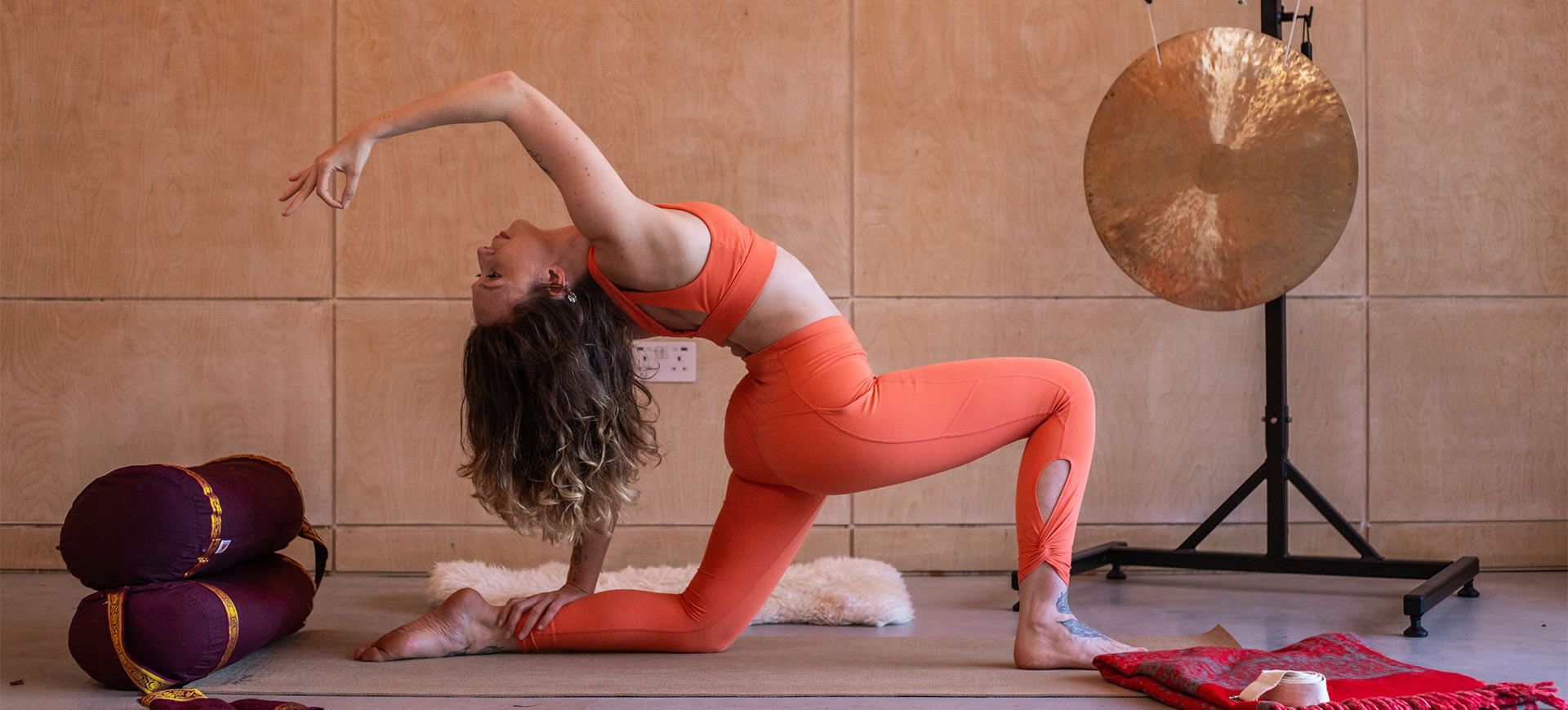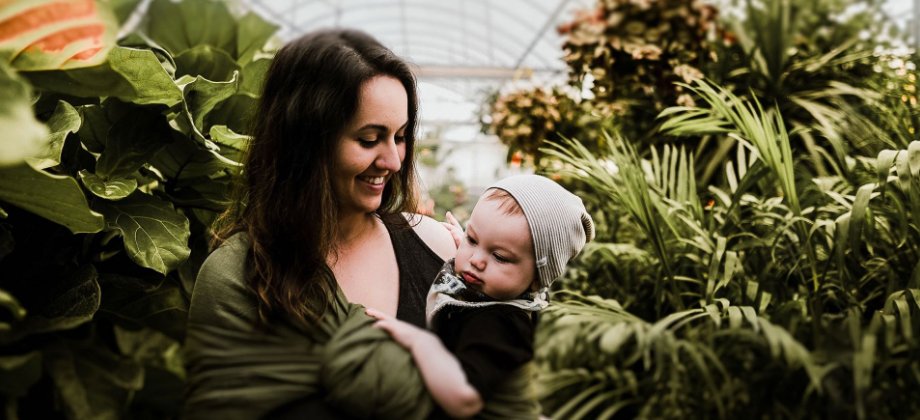
Finding Authenticity as a Yoga Teacher
Have you ever asked yourself at any point in your career, “is this me or the teacher talking?” It could be during a time when you were offering a course to a potential client, during a class you were teaching, or perhaps even advice you gave a friend about yoga. Can we tell where the yoga teacher ends and where we start? Or is it one and the same? While this blog post may not be an exploration on duality, being aware of our professional stance and how it sits pretty close to our actual personality is very important in finding our authentic voice.
Most of us chose yoga because, at some point, it became our passion. We love what we do, and we feel that we can make a good contribution to the community. Simple enough, right? Then we decide to turn our passion into a bit of profit. Suddenly we have to start caring about making rent, paying bills, creating content, the administrative work that goes into operating a business and letting it thrive, and finally, acquiring students. We read about sales techniques, interpreting and measuring analytics so that we can get to the level of success we want. All these things pile up when it used to be so simple. Do what you love and love what you do. How do we get back to that? How do we find that in our practice and/or teaching? How do we transmit our authentic passion for yoga to our students or our community?
All these inquiries point to one question: Was I being true to them and to myself?
Finding Authenticity as a Yoga Teacher
Core Values
Everyone has them. These are the most important things to you. For example, one of mine is to be honest with yourself and practice what you preach. So I try to apply that in everything I do as a teacher and as a person. Having and knowing these values can be very grounding as they influence your decisions. It gives you a framework for what you cannot compromise on. These could be your beliefs, your principles, the things you prioritize over all or most. To find out your core values, take some time to reflect. List down about 5 and keep that list with you as a reminder for yourself throughout your career or life. While you may change, core values stick or add up because they are usually based on important lessons you learned in life. Once you have these down, everything else that we will discuss further will follow.
Exercising Empathy
I know that this may sound like a no-brainer. Put yourself in other people’s shoes. It is a skill most of us believe comes naturally, but it doesn’t. Not really. Take teaching asanas, for example. As a teacher, we have probably achieved many advanced poses. How do we teach our students advanced poses or the process of reaching advanced poses? We break down the poses and talk them through transitions, but a number of us have probably lost the memories of what it felt like to work a full hanumanasana. The intensity, the frustration, and maybe some underlying issues that impede the progression into this pose. Empathy is about recognizing or becoming aware of the factors that can affect your clients’ learning process. Some of us may have higher sensitivity or are natural empaths, while others are less. That doesn’t mean that empathy cannot be practiced. We do this by taking a pause before we take action. “Reading the room” when you teach and see if your students are open to a teachable moment. Ask yourself, what is this client going through? How must it feel for them? Reflect on the actions you have taken with other students before and see if you have given them the best guidance at that time. Lastly, how could you make it better for the next client? It will come more naturally and faster as you apply it in your practice.
Some Vulnerability is OK
Boundaries are important in both your professional and personal life. But other times, showing humanity can be key in creating a community. This can be tricky because sharing too much can come to haunt you later, other times, it strengthens your relationship with your students, and their loyalties are solidified. I’m not saying that you should tell your life story to get your clients. I’m saying that if life happens and you feel that you need to share with your students, it’s ok if you do. First and foremost, you are a person first. Some students will be receptive, and others will not, but that is out of your control. And that’s ok!

Make time for yourself.
Teaching is one part performance art, one part profession, and one part you. Yet most of the time, we get lost in performance art. Has this happened to you? Have you, at some point, felt like you’re always wearing the teaching cap, even when you are out of the studio? If the answer is yes, then you will need to make more of an effort to do things for yourself. Do something outside of yoga. Get inspired by other things or other activities. Read a non-yoga-related book once a week. Cross something out of your bucket list. Be a student again (just make sure you don’t take teacher training for what you want to take up). Do something for yourself–not for your loved ones. How can you be authentic when you lose yourself teaching most of the time? In addition, your yoga practice may not count as time for yourself in this one. Why? We all know that our yoga practice blends with class preparation. The key to authenticity is about finding the reason you do your thing. So come back to you every chance you get.
Don’t get caught up in all the… well everything.
I remember when I started to use social media for my business. I acquired advice from colleagues, even social media managers, on optimizing my Instagram account to boost my name as a yoga teacher in Madrid. Everyone was happy to help. Suddenly, I was told that my website had to have these apps because it was better for conversions and analytics or that my Instagram had to have a uniform look. They even showed me examples of the profiles of the most popular teachers of the time. I checked them out for reference, and I saw that they had a following I could only dream of; they had a very streamlined Instagram account. All of them had a color scheme, beautiful custom font for the texts and quotes, and perfectly and professionally shot photos, but there was one thing they didn’t have–identity. All that branding to make themselves look like a business, and that was exactly what happened. Professionalism without the personal touch. I realized that I didn’t want that. I realized that the most important thing was to stay true to myself. I decided to post about my classes. The achievement of each student, I showcased how they felt after a class with me and my practice. So far, I see some more sign-ups, but I was mostly happy with the content I was putting out there. So go back to your core values and make them reflect your yoga.
Always Check Yourself
Evaluation and feedback are the best tools to make sure you stay on the path you have set. Taking an honest look at your actions, and having a trusted person in your life, like your other half or business partner, share their observations is key in making sure that you are still the same teacher throughout the many challenges you have faced. At the end of each class day, I usually ask myself if I did right by my students. Did I tell them everything I knew at that time, or did I leave something out? Was there anything more I could have done? All these inquiries point to one question: Was I being true to them and to myself? I know it sounds tedious, but I reflect on this every night whether I’m alone or sharing my daily anecdotes with my husband. He usually chimes in with an opinion. We also don’t sugarcoat things so that he can get a clear picture of what my classes were like that day. After seven years of processing my work hours, I think I can say with peace of mind that all my classes were a reflection of me and my core values. Take the time to assimilate your work day. It doesn't have to take a while, but it will make the difference whether you end the day in peace or not.
Let’s recap!
Find your core values. They will ground and frame your career and self. Practice empathy by reflecting on what your students could be going through. Some vulnerability is fine because you are a person first. Make time for yourself. Take yourself away from the yoga teacher role and get reacquainted with yourself. Be true to yourself in your business. Make content that you want to see, and you will find your audience. Always reevaluate your work day so that you can stay true to yourself.
Yoga is an industry that walks a fine line between the personal and professional 24/7. This is what makes our industry unique from other businesses. This means that it is important that we bring our individuality into our classes and studios. So don’t be afraid to use your instincts when it comes to you and your business. That’s why you have them. Get a feel for yourself in your role. And see what comes out.






